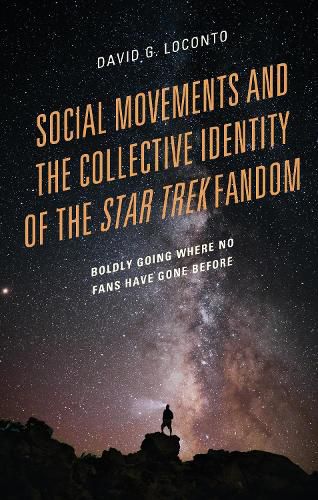Readings Newsletter
Become a Readings Member to make your shopping experience even easier.
Sign in or sign up for free!
You’re not far away from qualifying for FREE standard shipping within Australia
You’ve qualified for FREE standard shipping within Australia
The cart is loading…






Since it first aired in 1966, Star Trek has led American television into a more progressive era by presenting a diverse cast interacting as equals, demonstrating expertise and efficiency as they lead a starship across the galaxy. To this day, the Star Trek franchise strives to inspire viewers to find beauty in diversity and progress. In Social Movements and the Collective Identity of the Star Trek Fandom: Boldly Going Where No Fans Have Gone Before, David G. LoConto explores the development of the Star Trek fandom from its uncertain beginnings in the 1960s, to the popularity explosion in the 1990s and its triumphant return in 2017. LoConto analyzes the cultural phenomena of Star Trek through a social psychological approach, using symbolic interactionist and strategic ritualization theories, as well as ideas from Habermas and Foucault to track the fandom’s movements, values, and evolution.
$9.00 standard shipping within Australia
FREE standard shipping within Australia for orders over $100.00
Express & International shipping calculated at checkout
Since it first aired in 1966, Star Trek has led American television into a more progressive era by presenting a diverse cast interacting as equals, demonstrating expertise and efficiency as they lead a starship across the galaxy. To this day, the Star Trek franchise strives to inspire viewers to find beauty in diversity and progress. In Social Movements and the Collective Identity of the Star Trek Fandom: Boldly Going Where No Fans Have Gone Before, David G. LoConto explores the development of the Star Trek fandom from its uncertain beginnings in the 1960s, to the popularity explosion in the 1990s and its triumphant return in 2017. LoConto analyzes the cultural phenomena of Star Trek through a social psychological approach, using symbolic interactionist and strategic ritualization theories, as well as ideas from Habermas and Foucault to track the fandom’s movements, values, and evolution.